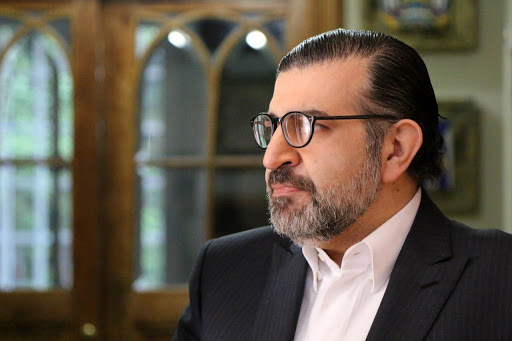Mentioned BY: Dr. Seyed Mohammad Sadeq Kharazi

PEJOURNAL – Two important events took place during the last week:
First, the assassination of our country’s nuclear scientist, the late Martyr Mohsen Fakhrizadeh, which all indications are that this complex operation was led by Mossad and its affiliates, including the hypocrites (MKO).
Second, the approval of the “ Strategic Action Plan “ for the lifting of sanctions by parliament, which was approved on Sunday, November 30, and the Guardian Council approved it on Wednesday, December 3, 2020.
The strategic action plan to lift the sanctions was on the parliament’s agenda a few months ago, and some details were reported to the media by some members of parliament, but with the assassination of Martyr Fakhrizadeh, its approval by the parliament and then the Guardian Council accelerated.
These two consecutive incidents intensified criticism and pressure on the diplomatic and foreign policy apparatus of Hassan Rouhani’s government.
The government has explicitly stated that it opposes the plan, calling it to the detriment of the country’s diplomacy.
Meanwhile, the Speaker of Parliament, Mohammad Baqer Qalibaf, stressed in a televised interview on Thursday that the plan had been on the parliament’s agenda for several months and that its purpose was to help the country’s diplomacy to lift the burden of sanctions. He stressed that the approval of this plan does not mean Iran’s withdrawal from JCPOA.
In this case, it is not bad to mention some points here.
First, in view of the cowardly assassination of our country’s nuclear scientist, which the Israeli authorities not only did not explicitly deny but also implicitly endorsed, prompted the government to react seriously to show Iran’s enemies that it suspected no matter what they do, Iran will not remain silent, and has many cards that it can use when necessary. Incidentally, these cards are against Israel the most.
Second, it is true that with the approval of this plan, the government’s work to negotiate with the Western negotiating parties has become more difficult, but first, Iran’s work had become more difficult with the unilateral withdrawal of the United States from the UN Security Council’s resolution, and this difficulty remains strong.
Third, there is no guarantee that even if this plan was not approved, the Western pressure on Iran would be reduced, even now that Trump is gone and Biden has come and whispers of his softness to return to JCPOA can be heard. Incidentally, the assassination of Martyr Fakhrizadeh took place at a time when the United States was in a period of transition, and it is clear that this was done mostly to put pressure on Iran.
Fourth, experience has shown that whenever you enter the field with determination against the other side, he sits back and if he sees that you have a serious plan that can disrupt his calculations, he is willing to give points and convince you to keep the equations of the game.
Let us not forget that JCPOA was achieved when the West accepted Iran’s right to enrich itself, when Iran had started 20% enrichment, while before that it was by no means willing to recognize Iran’s right to enrich.
We must always make the best use of our resources. The new plan of the parliament may have made the work of our diplomats more difficult, but we can look at the issue from another perspective.
This plan could give a pressure leverage to Iran’s foreign policy apparatus to force the West to adhere to the resolution it has already violated and to seriously pursue Iran’s main demand, which is the actual lifting of sanctions. The art of diplomacy is to make the best use of opportunities and turn situations and possible threats into opportunities.
If we look at the issue from this perspective, we can say that the plan of the parliament can be to the benefit of our negotiators in order to force the Western parties to negotiate seriously in the future and to conclude the negotiations without wasting time.
As Iran’s Foreign Minister Mohammad Javad Zarif has said, if the Westerners do not fulfill their obligations in JCPOA, the Iranian government will have to implement what the parliament has approved.